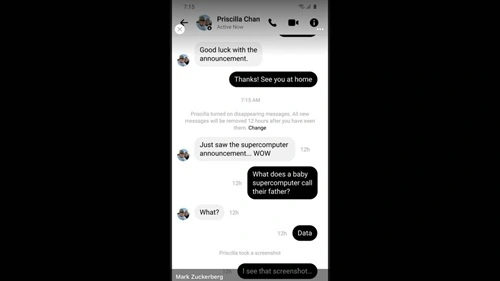No, it is not inherently illegal to screenshot messages in the United States, but how the screenshots are used can lead to legal issues. While capturing a screenshot of a private conversation is not typically a criminal offense, privacy laws, defamation, and intellectual property concerns may come into play depending on the context.
The Legal Framework Surrounding Screenshots of Messages
1. No Specific Laws Prohibiting Screenshots
- There are no federal or state laws in the U.S. that specifically prohibit taking screenshots of messages, whether they are from text messages, emails, or social media platforms.
- However, certain circumstances, such as the violation of confidentiality agreements, can make the act of sharing those screenshots problematic.
2. Privacy Concerns
- While taking a screenshot is not illegal, sharing it publicly without the consent of the other party may violate privacy laws.
- In cases involving sensitive or confidential information, sharing screenshots could lead to legal action under privacy or breach-of-confidence laws.
3. Defamation and Misuse
- If screenshots are altered or shared in a misleading manner to harm someone’s reputation, this could lead to defamation lawsuits.
4. Intellectual Property
- In some cases, the content of a message may be copyrighted or considered intellectual property. Sharing such messages without permission could lead to legal repercussions.
Legal Scenarios Involving Screenshots
1. Employment Context
- Sharing screenshots of workplace communications (emails, Slack messages, etc.) without authorization could violate company policies or nondisclosure agreements (NDAs).
2. Court Evidence
- Screenshots are often used as evidence in court cases. To be admissible, the content must not be altered and must adhere to rules of evidence.
3. Social Media and Online Platforms
- Platforms like Instagram, Snapchat, and WhatsApp often notify users when a screenshot is taken. While this is not a legal restriction, it serves as a warning about potential misuse.
4. Harassment and Cyberbullying
- Using screenshots to harass, intimidate, or bully someone online can lead to legal consequences under cyberbullying or harassment laws.
When Sharing Screenshots Becomes Illegal
1. Breach of Confidentiality
Sharing confidential information contained in messages, especially in business or professional contexts, may violate contractual agreements or laws protecting trade secrets.
2. Revenge Porn Laws
Sharing explicit images or conversations of a sexual nature without consent is illegal under revenge porn laws in most states.
3. Wiretap Laws
Recording or sharing conversations without consent may violate federal or state wiretapping laws. However, this typically applies to real-time audio or video recordings, not screenshots of written messages.
4. Misrepresentation
Altering screenshots to misrepresent someone or defame their character could lead to legal action.
Ethical and Practical Considerations
1. Consent and Communication
Always seek consent before sharing private conversations to maintain trust and avoid legal complications.
2. Context Matters
Consider the sensitivity of the information and the potential consequences of sharing it.
3. Secure Storage
Screenshots containing sensitive information should be stored securely to prevent unauthorized access or misuse.
Related FAQs
Q1. Can I get in trouble for sharing a screenshot of a text message?
Ans: Yes, if sharing the screenshot violates privacy laws, defamation laws, or confidentiality agreements, you could face legal consequences.
Q2. Is it illegal to take a screenshot of a Snapchat message?
Ans: Taking a screenshot of a Snapchat message is not illegal, but sharing it without consent could violate privacy laws or terms of use.
Q3. Can screenshots be used as evidence in court?
Ans: Yes, screenshots are often used as evidence, but they must be authentic, relevant, and unaltered to be admissible.
Q4. Is it legal to screenshot and share workplace messages?
Ans: Sharing workplace communications without authorization may violate company policies or NDAs, potentially leading to disciplinary or legal action.
Q5. Can I sue someone for sharing my private messages?
Ans: Yes, if sharing the messages violates your privacy or defames your character, you may have grounds for legal action.
Conclusion
While taking screenshots of messages is not inherently illegal, how those screenshots are used can lead to legal repercussions. Sharing private conversations without consent, especially when it involves sensitive, confidential, or defamatory content, can violate privacy laws and other regulations. To avoid potential legal issues, it is always best to use discretion, seek consent, and respect others’ privacy.


